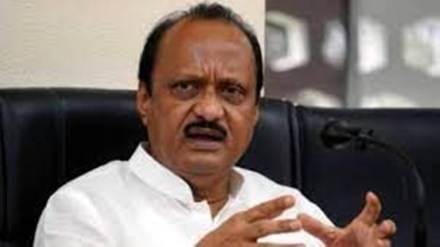With nine NCP leaders, including Ajit Pawar, taking oath as ministers in the Shiv Sena-BJP government in Maharashtra, sources in the BJP say that the rebellion group claims to have the support of more than 40 out of NCP’s 53 MLAs in the state Assembly.
To circumvent the provisions of the anti-defection law, Ajit will need the backing of more than 36 MLAs.
Presently, in the Maharashtra Cabinet there are nine ministers from the BJP, nine from the Shiv Sena and nine from the NCP including Chief Minister Eknath Shinde and his two deputy CMs Devendra Fadnavis and Ajit Pawar. The Cabinet can have a maximum of 43 members.
To avoid the implication of the law, Ajit Pawar needs the support of at least two-thirds of NCP’s tally of 53 MLAs, which he claims he has.
What is the anti-defection law?
The Tenth Schedule – popularly known as the Anti-Defection Act – was introduced in the Constitution via the 52nd Amendment Act, 1985 and serves as a deterrent to people who switch from one political party to the other. The Tenth Schedule was included in the Constitution in the year 1985 by the Rajiv Gandhi government and its objective was to establish political stability.
The law was introduced after multiple state governments were toppled by party-hopping lawmakers after the 1967 general election.
It lays down the process by which legislators may perhaps be disqualified and eliminated from their respective legislative assemblies on grounds of defection by the Presiding Officer of the legislature based on a petition by any other member of that House.
A legislator is reasoned to have defected and switched sides if he either of his/her own accord gives up the membership of his party or goes against the directions of the party leadership on a vote. This means that a lawmaker defying and abstaining or voting against the party on any specific topic can lose his membership of the House.
When can lawmakers escape anti-defection law?
When Parliament passed this law, it had two options for a group of lawmakers to abstain without incurring legal repercussions. Firstly, if one-third of a political party’s legislators left it, and secondly if two-thirds of a party’s lawmakers merged with another party. It wouldn’t be seen as a defection in any scenario.
According to former secretary general of the Lok Sabha, PDT Achary, to avoid the anti-defection law, two-thirds of members of the NCP should support the leader. “Then they won’t be disqualified as per the judgment by the Bombay High court.”
The law is applicable to both Parliament and state assemblies.
Speaker’s role in defection
While hearing a case related to the Maharashtra political crisis in 2022 and whether a Speaker facing a notice for his removal can disqualify MLAs in his assembly, the Supreme Court (SC) on February 15, 2023 maintained that the Speaker should be the first authority to decide on disqualification.
However, in 2016, the SC in the Nabam Rebia case had held that a Speaker or Deputy Speaker facing notice of removal cannot decide disqualification proceedings against legislators.
